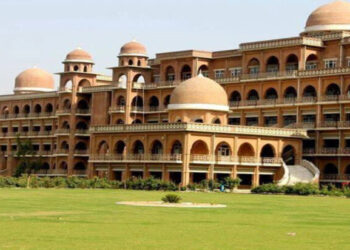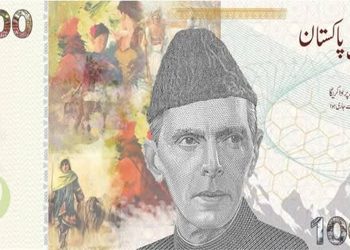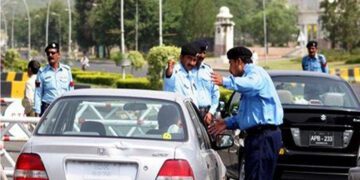NEW YORK: With India on the back foot following Canada’s allegations about its involvement in the killing of a Sikh leader, Indian External Affairs Minister S. Jaishankar urged UN member states not to allow “political convenience” to determine responses to terrorism, extremism and violence.
Jaishankar made no direct reference to the diplomatic standoff with Canada in his speech to the 78th session of UN General Assembly as he tried to shift the focus to India’s achievements, including chairing of the Group of 20 industrialized nations, its leadership role in international affairs and the moon landing.
“When we aspire to be a leading power, this is not for self-aggrandizement, but to take on greater responsibility and make more contributions,” he said. “The goals we have set for ourselves will make us different from all those whose rise preceded ours.”
Jaishankar said that the world must not “countenance that political convenience determines responses to terrorism, extremism and violence.”
Opening his speech with “Namaaste from Bharat”, Jaishankar said, “we often advocate the promotion of a rules-based order. From time to time, respect for the UN Charter is also invoked.”
“But for all the talk, there are still a few nations who shape the agenda and seek to define the norms. This cannot go on indefinitely. Nor will it go unchallenged.”
Observers were watching to see whether Jaishankar would take direct aim at Canada, but doing so on a global platform could have widened a rift that already has dominated headlines internationally.
Experts have said India wouldn’t like to draw more attention to the dispute with Canada at a forum such as the UN, preferring instead to treat it as an issue just between the two countries involved.
READ MORE: US expects India to work with Canada on murder case: Blinken
Earlier, when asked about the allegations at a Council on Foreign Relations event in New York, the foreign minister detailed India’s response in diplomatic engagements.
Jaishankar said that India has told Canada it was open to looking into any “specific” or “relevant” information it provides on the killing of Sikh separatist Hardeep Singh Nijjar.
“One, we told the Canadians that this is not the government of India’s policy,” he said. “Two, we told the Canadians saying that look, if you have something specific, if you have something relevant, you know, let us know – we are open to looking at it.”
India last week suspended new visas for Canadians and asked Ottawa to reduce its diplomatic presence in the country, citing what it called a deteriorating security environment.
India had been “badgering the Canadians” about its claims that organized criminals are based there, a reference to separatists like Nijjar, he said, adding that India had made “a large number of extradition requests.”
“The picture is not complete without the context,” he added. “You also have to appreciate that in the last few years, Canada actually has seen a lot of organized crime, you know, relating to, you know, the secessionist forces, organized-crime, violence, extremism, they’re all very, very deeply mixed up.”
Prime Minister Justin Trudeau said last week that Ottawa had credible intelligence linking Indian agents to the murder, prompting an angry initial reaction from New Delhi, which denies the allegation.
Canada’s allies, including the United States, have cautiously expressed concern over the claims and urged India to cooperate with Canada’s investigation.
The US ambassador to Canada told Canadian television that some information on the case had been gathered by the Five Eyes intelligence alliance, which includes the US, Canada, Australia, New Zealand, and the UK.




































